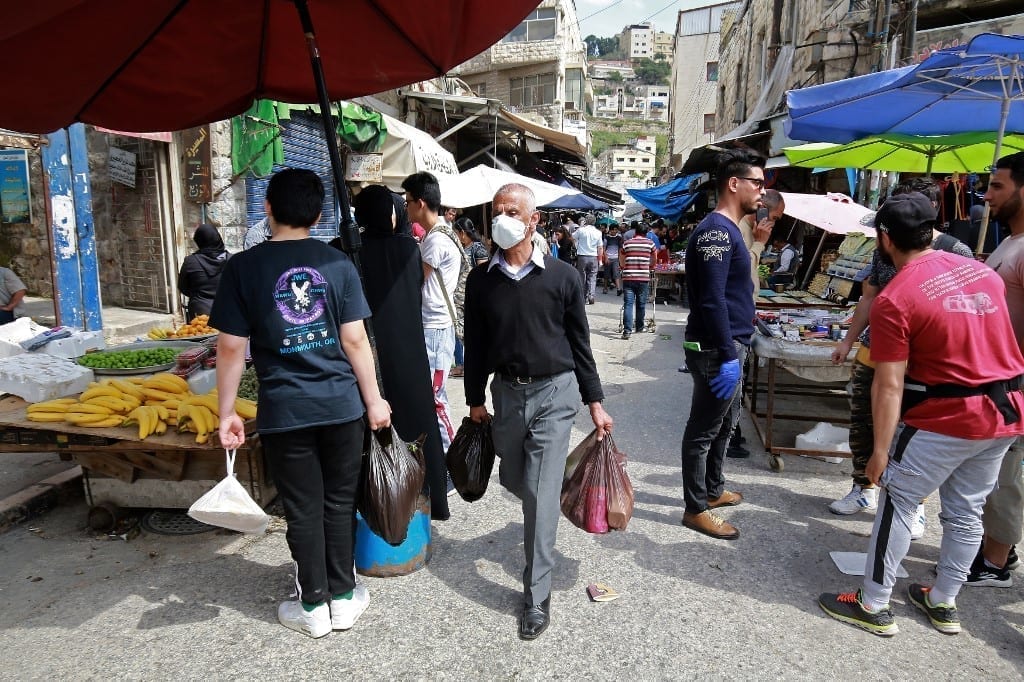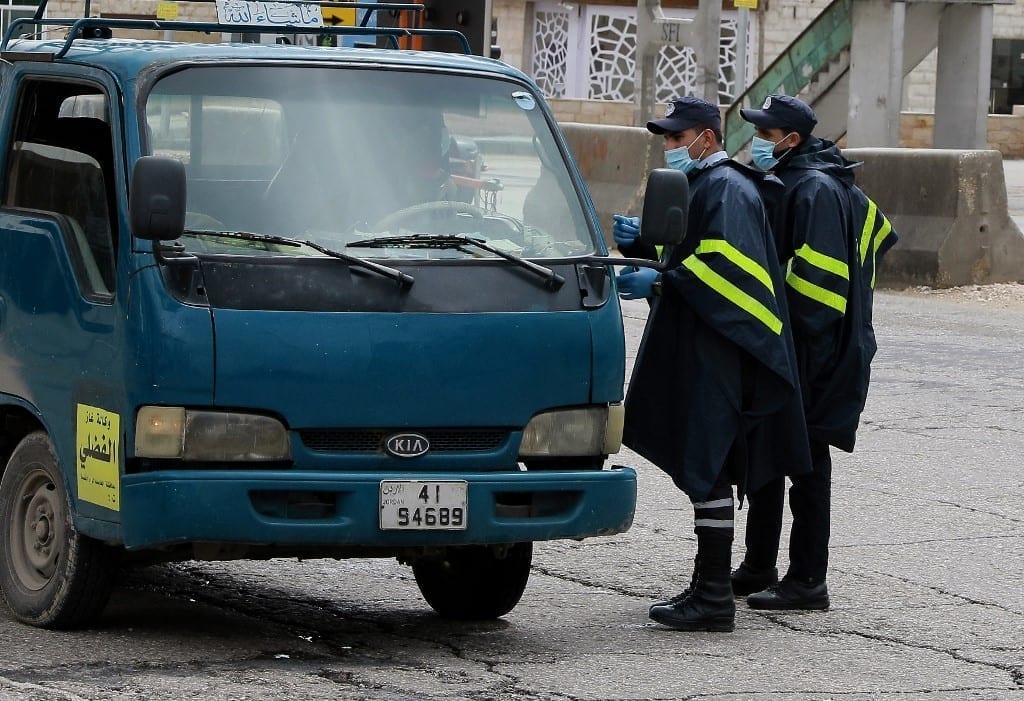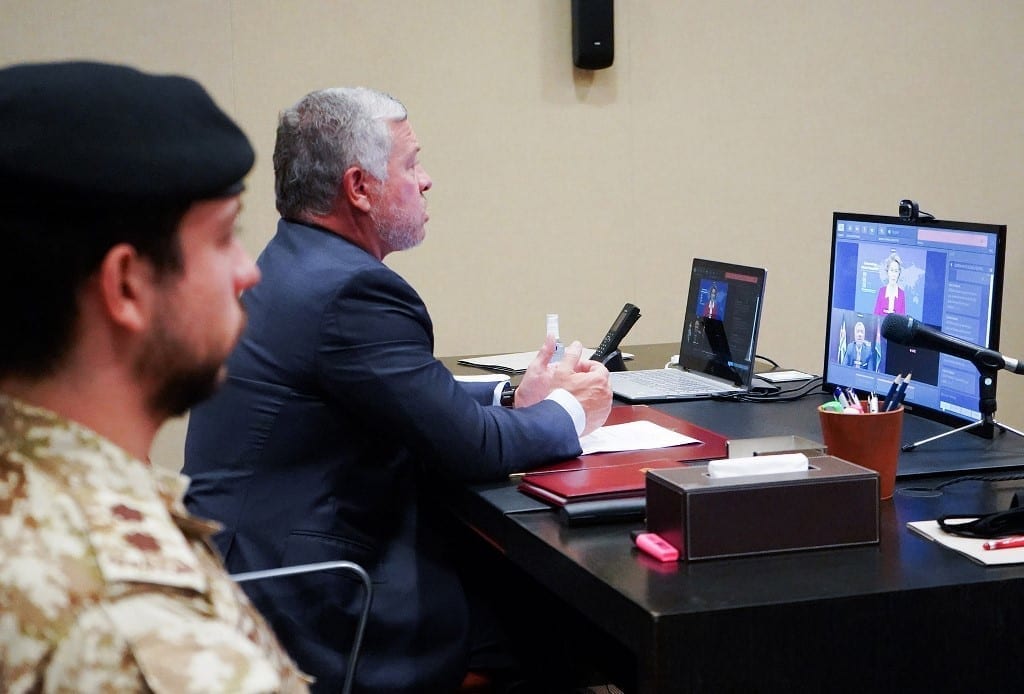He went to visit his detained father in prison, so he was forced to take off his clothes, then they photographed him inside the security station and shared his photos. That’s what Majd―son of the Jordanian opposition figure and former parliament member Salim al-Batayneh―said he had faced when he wanted to visit his father, days before the end of Ramadan, the thing that sparked widespread criticism and caused quite a stir in Jordan, in addition to calls for an investigation into what happened.
According to Majd, when he wanted to visit his father, he was asked to take off his clothes for inspection purposes, and when he did, the security guard took out a phone and started photographing him and calling him names. After leaving, he recorded a video narrating what had happened then shared it on social media platforms, but later the Jordanian authorities announced that they had reviewed the surveillance tapes and that Majd’s version of the story was untrue.

Abduction
One of the cases that made a deep impression on public opinion was arresting Salim al-Batayneh, that happened at the beginning of the Coronavirus crisis, when his daughter―Ruqayyah―spoke out, at the time, through a video crying, invoking and describing how the security forces fired tear gas on her and her family, along with the protesters, to arrest her father.
The arrest story started on the 7th of April, 2020, when Salim al-Batayneh was abducted; At first he had disappeared, then it was announced that he had been arrested. His family contacted the Directorate of Criminal Investigations to inquire about his place. They were informed that the car used to abduct him did not belong to the criminal security, thus his relatives called Jordan’s centralized emergency line (911) and informed them that Salim al-Batayneh was abducted. Four days later, his family received a call from him―Salim―that only lasted for a few seconds, and they understood, at the time, that he was detained without knowing his detention place or even the charges pressed against him. On the day he was arrested, Mo’tassem al-Batayneh―a military retiree―was also detained and his family did not know anything about him, and the security agencies denied his detention. The two families kept anxiously waiting for any news, until the 12th of April, when Mo’tassem’s family received a call from him to inform them that he and Salim were detained in Al-Salt Prison, and that the attorney general of the Military State Security Court charged them with “Subverting the System of Government,” and asked his family to get them a lawyer. Moreover, he mentioned that this crime was considered, in the Jordanian law, a terrorist crime that should be subjected to the jurisdiction of the paramilitary State Security Court.
“The government is using the Defense Act today, which was enacted under the pretext of Coronavirus, to restrict public freedoms”
Mo’tassem’s wife told “Daraj”: “We are still surprised, to this day, by the way Mo’tassem was abducted, and by pressing such a charge against him. How can you accuse a person who served the country for 26 years, of subverting the system of government?!”
“I am really sad and I can’t believe this is all happening, it was only a year and half ago since he retired, he was a colonel in the gendarmerie and I am certain of his innocence.”
It must be noted that the poor health conditions of Motasem, and Salim al-Batayneh, pushed al-Batayneh’s clan to appeal to the Jordanian king to release them in Eid al-Fitr.
Salim al-Batayneh is a well-known politician and engineer, that’s why the Engineers’ Syndicate demanded his release. Moreover, the head of the Engineers’ Syndicate, Ahmad Samara, commented on his arrest and explained to Daraj that it was essential that he was to be set free, along with all the detainees. “In the next phase,” he added, “we must empower our home front and ease restrictions on the freedom of expression to face challenges such as; the economic challenge, unemployment, and fear of protests and demonstrations that could occur if people starved.”


The “Inciting” Report
This was not the only arrest that has since sparked fears and worries. After the abduction of Motasem and Salim al-Batayneh, the CEO of Ro’ya TV―Fares al-Sayegh―and News Director Mohammad Al-Khalidi, were arrested due to airing a report revealing the sufferings of the poor and day-labourers who were left jobless―after the curfew was imposed to combat the Coronavirus―without any source of income. Al-Khalidi and al-Sayegh were arrested and their case was referred to the State Security Court as well. The charges pressed against them were related to incitement, based on the ‘Prevention of Terrorism Act,’ the act that always threatens the independence of the Jordanian media. Furthermore, the observers considered this a message to the media and its executives to lower their voices and not to criticise the government even if they intended to publish credible information.
The report aired on Ro’ya TV, which the authorities considered as an incitement act and arrested al-Khalidi and al-Sayegh because of it, showed a young man talking about his deteriorating living conditions and the lack of basic life needs. He said, in the report, that he wished to die instead of living without a source of income or even some bread crumbs. “What should I do? Steal, beg or deal in drugs?” He asked. Another woman complained, in the report, after her son―who is a day labourer―lost his job and sorrowfully said: “We do not have money, bread, gas, rice or sugar at home,” Moreover, she complained about not receiving any response on her request to get the national aid, in 2011. She summed up her situation and the living conditions of the families of day labourers in one sentence: “If we do not die of the Coronavirus, we will die of hunger.” This was the content of the report which concerned the security forces and raised questions about whether revealing the pain of the poor, day labourers and desperate families is now classified as an incitement and a crime against which journalists are prosecuted?
“Daraj” contacted the owner of Ro’ya TV. but he did not comment on what happened to him when he and Al-Khalidi got arrested, because the case was still pending before the Jordanian courts.
The Journalist, Omar Ayasrah, explained to “Daraj” that “The state needed to adjust the media’s compass, that’s why arresting al-Khalidi and al-Sayegh is a message to the media executives, and the grumbling audience, to comply with the Defense Act. Furthermore, Mr. Ayasrah was not surprised by the arrests, indicating that the “Coronavirus” did not change the state’s behaviour―if we considered it a variable factor―because these arrest campaigns were happening and even implemented in the same way before. “We can understand that the state will not tolerate or even be lenient toward political opponents, under the ‘Coronavirus’ outbreak, because it does not need the pandemic’s cover as it was arresting people before the spread of the virus and it is still using the same approach.”


The Arrest Campaigns Did Not Stop
Repeated arrests of opponents, journalists and activists prompted “Human Rights Watch Organization” to criticize what the Jordanian authorities are doing and declare that it might end the ongoing debate about Jordan’s response to the spread of the Coronavirus.
The Decree of 15/04/2020 states that sharing any information, about the pandemic in the media or internet, that can “cause panic” is punishable by up to three years in jail. Since the declaration of the state of emergency on March 17, Jordanian authorities have detained two prominent media executives, a foreign journalist, a former parliament member―most probably in response to declaring their criticism―and three other individuals for allegedly spreading “fake news.”
In this context, the journalist H.K.―who is Bengali and known as Bassem Salim Akkash―was arrested on April 14, 2020, after receiving a call in which someone told him: “We have something of yours, would you like us to deliver it at your doorstep or would you come and take it yourself?” He replied that he would like them to deliver it and gave them his address. Within half an hour, three men in civilian clothes arrived and did not identify themselves, according to the words of Salim’s wife.
“I asked them who they were but they did not answer, I asked them for a personal ID and they did not show me any, and I asked them where they were taking my husband and they did not answer.” She added. Salim’s wife then tried to know where they took him but the security forces denied having him. Thus, she contacted the Bangladeshi Embassy in Amman, Jordan and reported what happened, but in vain. However, she indicated that three days later, she received a call from Salim telling her that he was in jail due to publishing a report a week before his arrest; one in which he tried to tell the world about the sufferings of the Bengali people under the curfew and not receiving assistance from their embassy.
Salim is a registered journalist at his country’s embassy and works with media outlets in Bangladesh, but he is not registered as a journalist in Jordan and works at a school cafeteria in Amman in addition to his work as a journalist, according to his wife.
According to a reliable source, Akkash was accused of terrorism-related charges, like the incitement charge stated in the Jordanian anti-terrorism law.
“I asked them who they were but they did not answer, I asked them for a personal ID and they did not show me any, and I asked them where they were taking my husband and they did not answer.”
In addition, security services arrested at the beginning of May an activist in the movement of Bani Hassan, Abdullah Abu-Sail al-Khalayleh. Bakr, his son, explained to Daraj, “My father was going to buy breakfast with a driver, when a bus and 3 cars stopped my father, and people in civilian clothes, who later turned out to be from the General Intelligence Department (GID), pointed out their weapons at my father and arrested him.”
Later, Bakr and his family knew that Abdullah was at the headquarters of the GID in Amman, at the Jandaweel region, but they knew nothing about his health and since then have no information about him, as they have not received any call from him since he was arrested until the moment this report was written.
Bakr explained, sadly, “We only want to be reassured, as we received information that my father has been mistreated and tortured at the Department, my mother is dying every day out from the anxiety.”


Exploiting the Defense Act
When the Jordanian King Abdullah II announced on 17 March 2020 the application of the Defense Act, he stipulated that Jordanian freedom should not be harmed in the context of fighting the epidemic, and stressed the freedom of expression guaranteed by the constitution and the International Charters. He said, “I would like the government to implement the Defense Act and the directives issued under it, as sparingly as possible, in such a way that it does not affect the political and civil rights of Jordanians, and to protect public freedoms and the right to expression…”
So the Defense Act was supposed to be implemented to confront the Coronavirus epidemic, not to confront the freedoms of individuals. In that context, Engineer Ahmed Samara, the Chairman of the Engineers’ Syndicate, told Daraj: “When the king gave directives approving the defense law, he stipulated that this law should not be misused, and that people’s rights and freedoms are not to be compromised, and I believe that the beautiful image Jordan has painted in the face of Coronavirus must be preserved without violating the freedoms of opinion and expression in such a way that may tarnish this image.”
“The government is using the Defense Act today, which was enacted under the pretext of Coronavirus, to restrict public freedoms,” said Said Dhiab, Secretary-General of the Jordanian Democratic People’s Unity Party. He expressed concern about the violation of more freedoms under the pretext of “Coronavirus” and the law of defense.
The Definition of Terrorism
The terrorist act was defined in the Jordanian Prevention of Terrorism Act as “the use or threat of violence, whatever its motivations, tools or purposes, pursuant to an individual or collective criminal enterprise with the intent to endanger the safety and security of society …” This does not apply to the report, which was broadcast by satellite TV station “Ro’ya”, so it should not be classified as a terrorist act, nor of the report published by journalist Salim Akkash, in which he discussed the Bengali’s suffering in Jordan under curfew.
It should be noted here that, as the UN Special Rapporteur on Human Rights while Countering Terrorism stated in a 2009 report, “The definition of terrorist crimes should be limited exclusively to activities involving, or directly related to, the use of lethal or dangerous violence against civilians….” Terrorist organizations, including attributing criminal responsibility to their members, should be banned on the basis of concrete evidence of activities of a truly terrorist nature, as well as on the actual involvement of the individuals concerned.”
“Jordan’s responsibilities to protect its citizens are not at odds with Jordan’s responsibilities to preserve their rights, and Jordan does not need to restrict freedom of expression to prevent terrorism,” said Joe Stork, Deputy Director for the Middle East and North Africa division of Human Rights Watch.
Jordan’s arrest and trial of journalists based on the anti-terrorism law raised concerns of journalists, political activists and opposition leaders, in addition to charges like those that brought about the detention of Salim and Mo’tassem Al-Bataina, as they were accused of undermining the ruling regime, according to article 149 of the Jordanian Penal Code. It stipulates that “anyone who, in the first place, undermines the Kingdom’s political system, incites against it, and anyone who has done any individual or collective action, with the intent to alter the state’s economic, social, or basic social status, is punishable with temporary hard labor”.
This charge was widely debated among jurists and activists, who considered it a stretchable charge, and a tool for settling accounts, and was previously criticized by Human Rights Watch, which demanded that the Jordanian authorities stop using it, and said: “For years, the Jordanian authorities have used the charge of “undermining the political system” mentioned in the Terrorism Section of the Penal Code against activists, and the authorities should stop using it to muzzle peaceful opposition.”
By reviewing the case of al-Khalayleh, the activist in the Beni-Hassan movement, we find that his arrest by the GID was illegal, as well as not allowing him to communicate with his relatives. The same right was also denied Akkash and al-Batayneh, a violation of the UN’s special decision to seek early access to a lawyer from the moment of arrest, and the right to communicate at the time of arrest.
With regard to the part of the referral of civilians to the State Security Court, the Human Rights Committee, in its concluding observations on the fourth periodic report on Jordan, expressed the lack of independence of the State Security Court, in terms of both organization and work. The court was deemed lacking independence and impartiality by the working team concerned with arbitrary detention, which reports to the Human Rights Council, in its report No. 39/2016, yet the Jordanian authorities are still determined to prosecute civilians at this court.
Ruqaya, the daughter of Salim al-Batayneh and her family are still suffering, due to the state of her father, and the families of Mo’tassem al-Batayneh, Salim Akkash and Abdullah Abu-Sail share the same suffering, the same bitterness and the same homeland.






